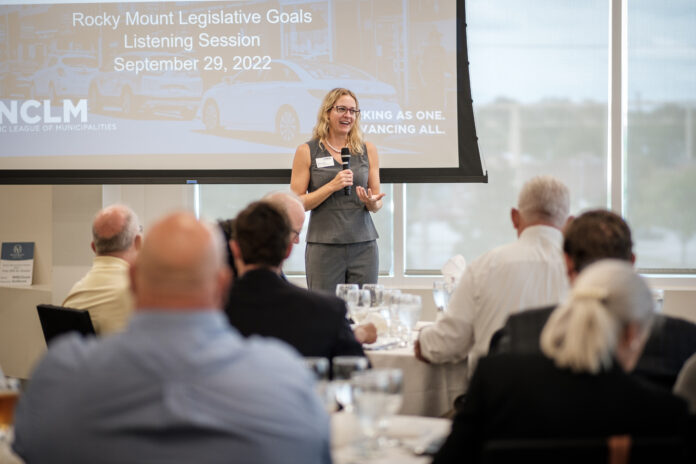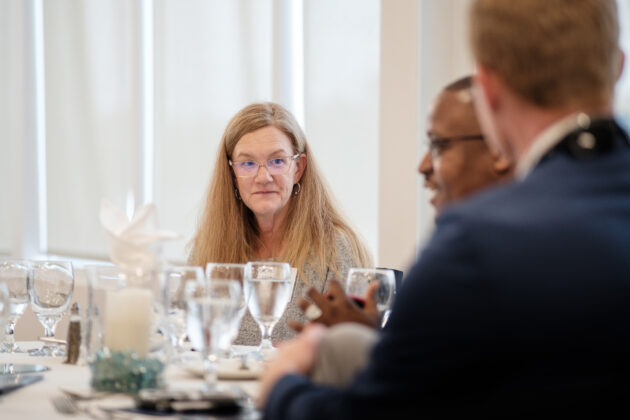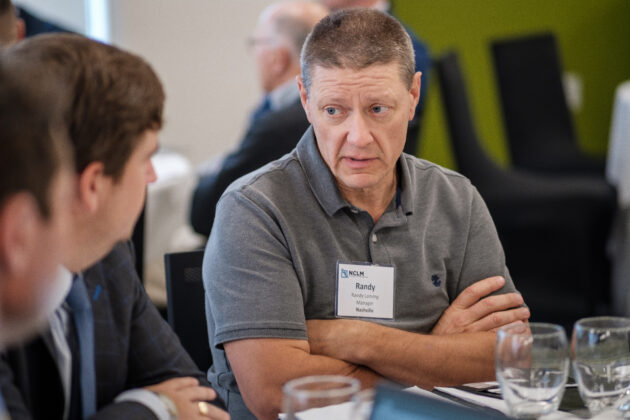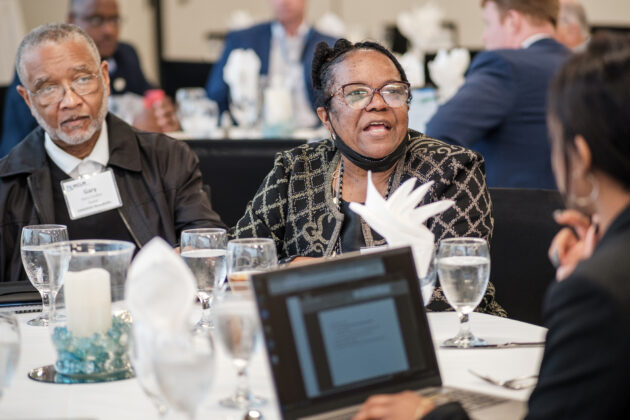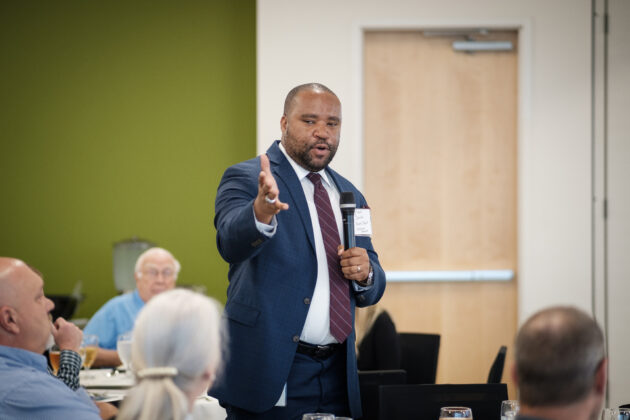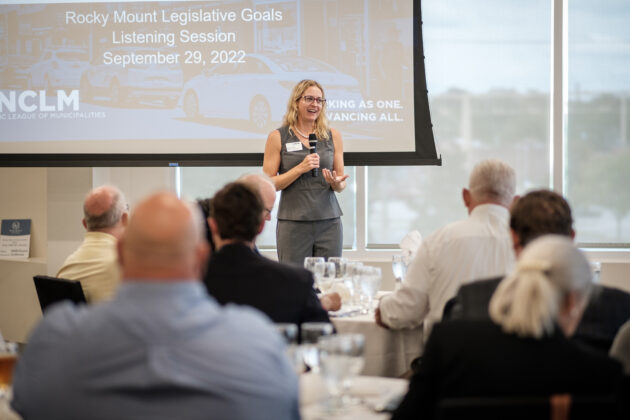Over a number of weeks this fall, the League of Municipalities legislative policy process kicked off in force with regional, online and affiliate listening sessions, collection of policy proposals online, and meetings of the Legislative Policy Committee.
This process will ultimately lead to the establishment of NCLM’s Legislative Goals for the 2023–24 legislative biennium.
The listening sessions began in late September as the NC Mayors Association and then another group of elected officials met over two days in Greensboro to discuss ideas that could lead to formal policy goals. During those sessions, as well as others that followed in Hendersonville and Rocky Mount, Government Affairs staff acted as facilitators in table discussion that essentially acted as focus groups. Elected officials discussed the challenges in their communities, with those comments then serving as the foundation for policy idea formulations.
A similar process took place during online listening sessions that included the League’s general membership and some affiliate groups.
In all, well over 400 separate ideas were collected as potential legislative goals, though not surprisingly, many similar threads ran through the submissions.
Among some of the most commonly discussed ideas: roads and other infrastructure, difficulties in filling law enforcement and other key staff positions, housing affordability and a lack of housing stock, economic development incentives, assistance for grant-writing and the need for additional technical expertise, delays in utility line replacements when road and other construction requires it, broadband access, local revenue options, problems associated with the decriminalization of local ordinance legislation recently passed by the General Assembly, and heirs property.
While those were commonly mentioned themes, many more ideas were discussed, and the conversations flowed freely.
At the listening session involving the NC Mayors Association in Greensboro, one grouping of smaller town mayors from eastern North Carolina empathized with each other over the hurdles that they face when seeking grant funding. “One size does not fit all,” said Bethel Mayor Gloristine Brown. “They don’t consider the smaller towns when they are making these decisions about how municipalities qualify for grants. People forget about that. The qualifications for certain things can mean we get left out.”
Similar discussions took place throughout these listening sessions, with representative municipal officials able to quickly recognize the common challenges that they face, and whether or not there might be state policy solutions to them.
With the collection of ideas taking place, the League’s 65-member Policy Committee began meeting to distill those ideas into concise goal language and prioritize them. Those meetings were set to continue into November.
Once the committee whittles the goals down to around 15 or so priorities, the League’s Board of Directors will examine them to further refine and make any changes. The full slate will then be put to the League’s full members for a vote.
While there is no set requirement for the final number of legislative goals, it is expected to roughly mirror the number adopted for the 2021–22 legislative biennium, when 12 were ultimately approved.
That number allows NCLM to present a list of focused needs to legislators, and one that it may reasonably seek to achieve.
Meanwhile, the comprehensive policy process, involving well over 200 municipal officials from cities and towns, both big and small, from across the state, ensures that state legislators know this list is representative of the collective needs of cities and towns, including those from their district.
It’s why the involvement of each municipal official in the process is so important to the League’s ultimate success.


